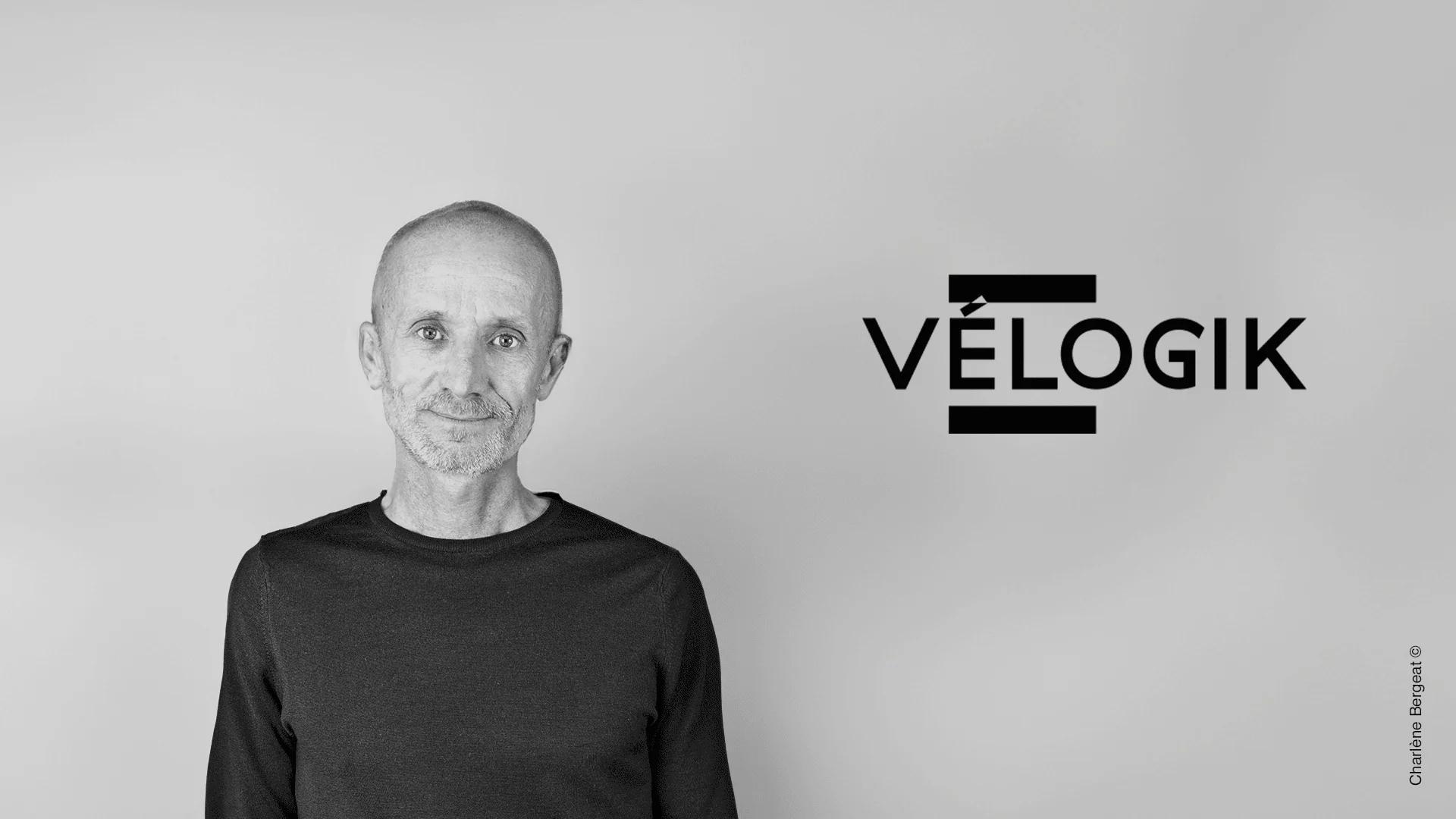« I have always been passionate about cycling. My dream was to democratize it as a means of daily transportation. »
Franck Bredy

« Cycling is a passion that I wanted to pass on to the greatest number. »
I created Vélogik in 2008, after extensive experience in real estate, to work on a project around my passion for cycling. I wanted to make cycling accessible to as many people as possible, by taking into account several value propositions: facilitating repairs, modernizing the profession of bicycle dealer, providing fleets of bicycles or offering bicycle tourism services. The basic idea (a bit crazy at the time) was to promote cycling for commuting. This idea is now obvious and the bicycle has become a credible solution to combat the ecological crisis. Little by little, Vélogik focused on supporting businesses and communities in their transition to more sustainable mobility.
After a lukewarm reception at the start of the venture in 2008, I’m proud of how far we’ve come and how much the market has changed. In Paris, 8% of city dwellers now use the bicycle at their main mode of transportation to go to work. Initially, we offered a range of varied services: provision of bicycles, bicycle tourism, maintenance and operation services. The main activity was ultimately anchored around the need for communities to maintain fleets of bicycles for their citizens in order to evangelize the practice of self-service cycling while keeping costs down for maintenance. We have become the specialist in B2B fleet maintenance, at the same time training bicycle mechanics and promoting the development of digital tools to monitor bicycles in service.
Existing bicycle fleets were poorly maintained. We needed to train mechanics of traditional and electric bicycles.
The Compagnie Nationale du Rhône (CNR) was our first customer, who entrusted us with the maintenance of its fleet of fifteen bicycles—a real launching pad for Vélogik. In 2010, the service was extended to the metropolis of Lyon, with a contract worth 100,000 euros, quickly followed by other contracts, which allowed us to densify our regional network. Fast-forward ten years and we have become the independent leader in fleet maintenance with fifty thousand bicycles under management including Vélib (Smovengo) and Véligo (Fluow) fleets in the Paris area and the French postal fleets (La Poste). We opened a workshop in Great Britain to duplicate our know-how in a country which was lagging behind in the development of self-service and long-term rental bicycles. Vélogik is becoming European!
By employing people far removed from the job market, we help them re-enter society.
We have built our model to have both an environmental and a social impact. On an environmental level, we extend the lifespan of bicycles, thereby contributing to the preservation of natural resources by limiting bicycle waste. On a social level, we encourage the hiring of people far-removed from the labour market, and who need proper support and training to maintain a job. We have set ourselves a target of 30% of employees from these backgrounds. We are happy to have chosen a financial partner who considers people as a key factor in our development.
We must see people as the heart of our strategy.
In our workshops, around thirty technicians graduate from our training program for people far removed from the job market. Once trained as bicycle mechanics, they are highly employable because of a strong market demand. Impact Partners has enabled us to roll out our European development plan and supports us with strategic growth experts. We appreciate their ability to challenge our business case and strategy, and they are an invaluable support with social impact issues.
Our offer is green and social.
The Vélogik model is difficult to transpose into other European countries, because each country has its own rules and procedures regarding training and employing people far-removed from the job market. Social systems are very different from one country to another, and there is no harmonization at European level. The job market in the United Kingdom is very different from the French market. This complicates matters for us when we want to offer the same benefits to all our employees, regardless of their country of origin. Cultural differences are also important. Faced with social issues, we must be able to adapt and immerse ourselves in the local culture. We cannot manage our development in Great Britain from France. It is essential to work with local partners to understand local difficulties and who can find appropriate solutions.
While we knew how to duplicate our model everywhere in France, when we entered the British market, we had to adapt to a different social context.
I discovered that in Great Britain, history makes the Scots more attached to the idea of a European Union than the English, for example. It’s important to pay close attention to cultural differences when you want to open new markets. Today, Vélogik has operations in Glasgow, and the company works with local charities to support the employment and training of people far-removed from the labour market. We are also present in more than ten French cities. We are looking to grow in Germany, the Netherlands and Italy! It’s a great challenge that we are desirous to tackle together as a company. It will take time but with our employees and our shareholders we are ready.

